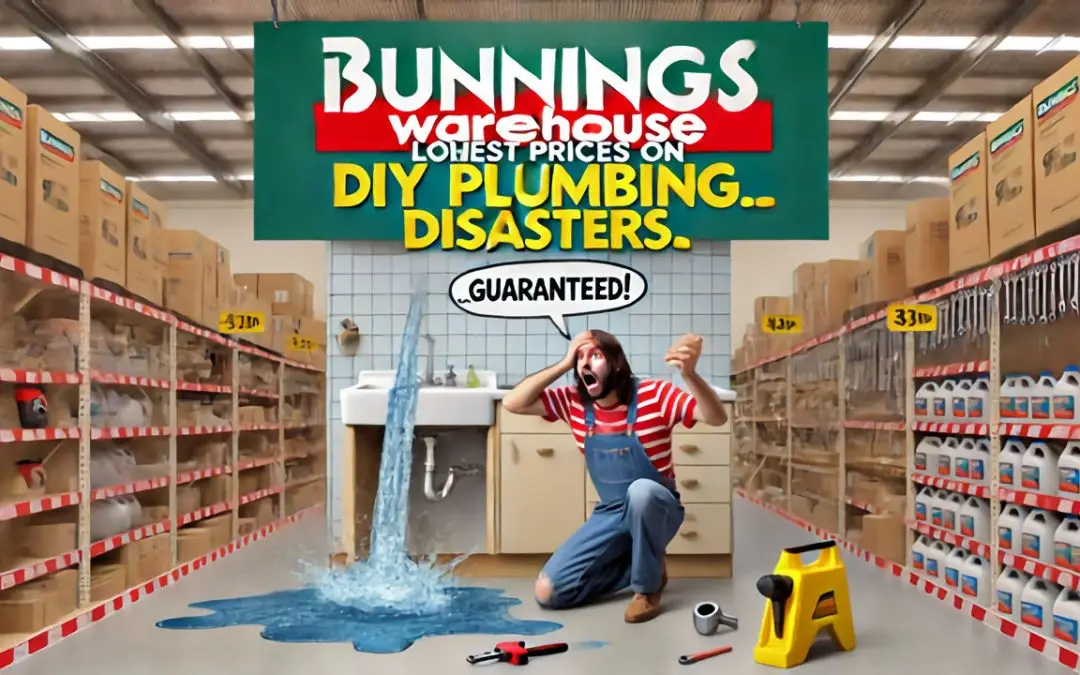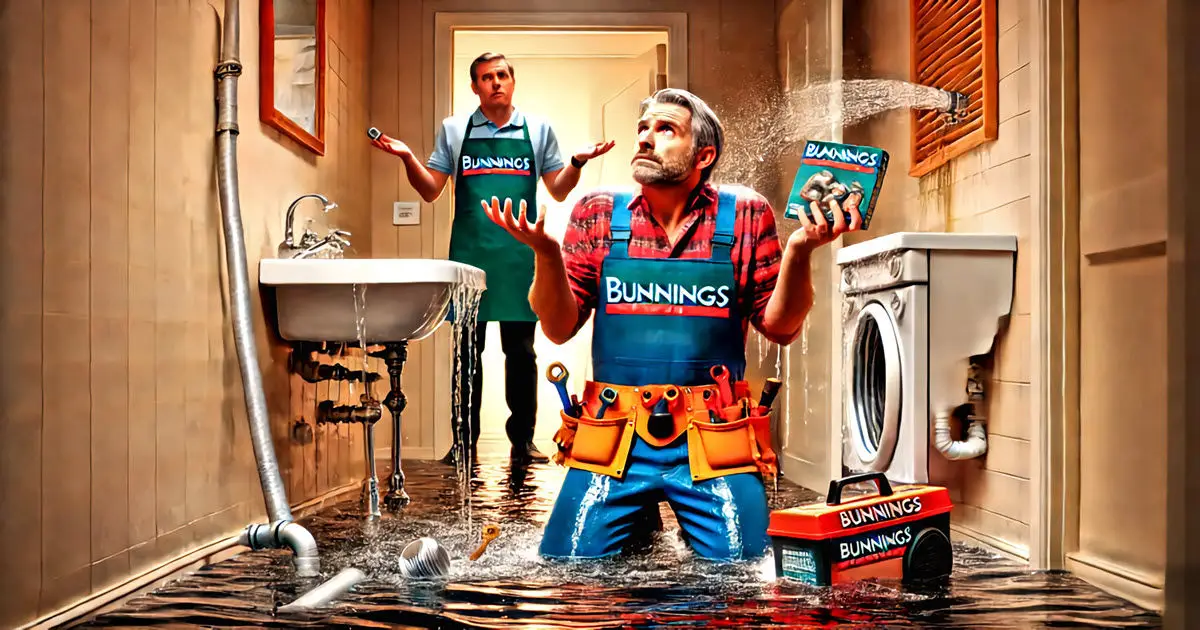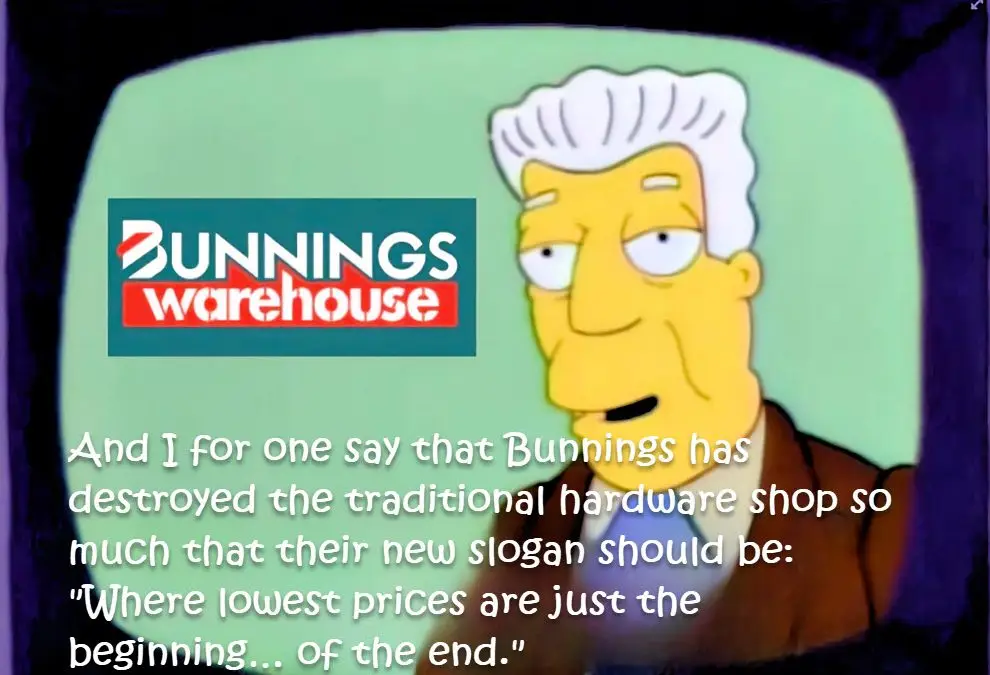
Bunnings Are Still Not Plumbers – And Never Will Be
by Gary Mays | Feb 3, 2025 | Bunnings
Bunnings & DIY Plumbing – A Decade Later, Nothing Has Changed
Back in February 2014, we wrote a blog explaining why Bunnings is not a plumber and never will be. Fast-forward to 2025, and guess what? Nothing has changed—except that Bunnings now wholly dominates the Australian hardware landscape.
If you thought your local hardware store was safe, think again. Bunnings has flexed its corporate muscles, sending countless small, family-run hardware shops to the retail graveyard. But one thing remains unchanged: while Bunnings might sell you plumbing parts, they can’t send an employee who is a qualified plumber to install them.
The Bunnings Effect: Where Every Staff Member Is "Pretty Sure" But Bunnings Are Still Not Plumbers
Walk into any Bunnings, and you’ll find a sea of green aprons, all ready to give you the best DIY advice… based on what they think they remember from the packaging.
- Need a pressure-limiting valve? “Nah mate, this hose fitting should do.”
- Replacing a mixer tap? “Yeah, just grab some of that white plumber’s tape—should be right.”
- Gas fitting? “We don’t do that, but here’s a garden hose connector!”
The reality is Bunnings staff are not plumbers—they’re retail assistants. While many are friendly and helpful, they are not licensed professionals who understand AS/NZS 3500 plumbing regulations or what happens when you accidentally connect your new fridge to the hot water line instead of the cold.
DIY Plumbing: Because Who Needs a Functional Bathroom Anyway?
The Bunnings “do it yourself” mentality is great for painting a fence or planting a veggie garden. But when it comes to plumbing, things get a little riskier.
Here’s what often happens when DIY plumbing goes wrong:
🚰 The Never-Ending Drip: “I swear I tightened it properly.” (No, you didn’t.)
🚿 The Exploding Mixer Tap: “It worked fine… until it wasn’t.”
💦 Water Hammer Nightmare: “Why does my house sound like a drum solo every time I flush?”
🔥 The Hot-Cold Surprise: “Why is my shower either molten lava or arctic freeze?”
By the time reality sets in, you’re on the phone with a licensed plumber, who now has to fix your DIY disaster—which always costs more than just calling a plumber in the first place.
The Death of Local Hardware Stores & The Rise of The Bunnings Empire
Once upon a time, you could walk into your local hardware store and get honest advice from real tradies. They knew their stuff because they’d spent decades working in the trade, not just scanning barcodes.
Bunnings, with its bulk-buy pricing and relentless expansion, has changed that. Most small, independent hardware stores have shut down, unable to compete with the warehouse-sized giant that now dominates Australia.
While Bunnings is excellent for snagging a sausage sizzle, it has left a gaping hole in professional, trade-based advice. Plumbing is not now and has never been DIY-friendly, but Bunnings will happily sell you the parts and let you figure that out the hard way.
Nothing Has Changed—And It Probably Never Will
It’s been over a decade since we first warned that Bunnings are not plumbers and never will be. If anything, the problem has only gotten bigger—literally.
So before you take plumbing advice from someone who was stacking garden mulch yesterday, ask yourself:
✅ Do I really know what I’m doing?
✅ Will this actually fix my plumbing issue?
✅ What will it cost when I inevitably have to call a plumber anyway?
Or better yet—skip the DIY disaster and call a licensed plumber first.
📞 Need expert plumbing help? Call Whywait Plumbing on (07) 5580 4311.
And if you want to revisit our original 2014 blog, where we first tackled this Bunnings saga, you can read it here. Spoiler alert: Nothing has changed.








